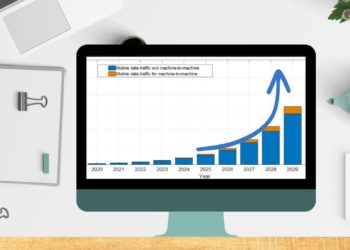The terrain of payment processing is a difficult one to traverse, especially when your startup is concerned. In this guide, our goal is to demystify the field of UK e-commerce and not just show you your options, but give you the knowledge necessary to make the right decision for your business.
Payment Systems in the UK – an Outline
The UK payment system is an incredibly complex infrastructure, connecting all manner of financial transactions, from simple card payments to the most advanced digital payments. At its heart, a payment system represents a combination of diverse means, mechanisms, and rules that allow money to flow. For UK companies, knowing these basics is very important when accepting payments online or offline. The four corners of the infrastructure that facilitate these inter-party transactions include banks, payment processors, and payment gateways, to name a few — all acting in harmony to provide a friction-free payment system for customers and merchants. As a startup, how effectively and securely you’re able to accept payments will be a huge factor in both the revenue and customer satisfaction levels you achieve, which is why selecting great payment technology is key. This includes understanding different payment channels such as card, bank, and alternative payments, and how they are processed within this framework.
In the UK, for any business that wants to receive payments — particularly online payments — a detailed examination of the different parts of an online payment system is a necessity. This usually involves a payment gateway, which is a secure link between your site and your UK payment processor. The payment gateway ensures that credit card information is passed securely between customer and merchant, and also between merchant and processor, following guidelines set by card associations like Visa and Mastercard. Other payment providers such as Worldpay or Trust Payments provide services that are wholly encompassing — from the first customer interaction on your hosted payment pages through to the final settlement of funds into your bank account. In-person payments through card machines are also an option. Assessing a potential payment service provider’s end-to-end payment capacity, pricing structure, and the types of payments it supports are important considerations when looking for the right partner to enable recurring payments and a broader digital payment strategy.
How to Choose the Right Payment Gateway for Your Business
When it comes to choosing a payment gateway that fits your business in the UK, there are a number of considerations and technologies to keep in mind. The payment gateway provides encryption — specifically, the substitution of sensitive data with random characters. This technology is applied to protect customers’ payment information while it’s being transferred from the customer to the payment processor.There are several payment options that are massively important to keep an eye on. The gateway itself should be able to handle transactions from all major card schemes, as well as newer methods like bank transfers and e-wallets — the latter becoming increasingly popular with online customers.Don’t forget to check what kind of integrations your payment gateway provider offers. Some include deep API integration for maximum flexibility and customization; others offer hosted payment pages, allowing merchants to get up and running without needing a technical team.The fees associated with each payment method are also critical — consider regular transaction fees, monthly charges, and any hidden costs for features such as recurring payments or fraud management tools.Lastly — and most importantly, if the previous points weren’t tough enough — is the quality and stability of the service provider. When your payment interface goes down, so does your revenue and your reputation with customers.
Beyond the basics, UK companies should also pay close attention to strong security and compliance features when evaluating providers. A reliable payment gateway will be PCI DSS (Payment Card Industry Data Security Standard)–compliant, protecting card payment data and minimizing the chances of data leaks or fraud.Look for gateways with built-in fraud prevention tools like 3D Secure authorization to keep scammers at bay. Streamlining the customer’s checkout process is also key to reducing cart abandonment — a clean UI, helpful guide text, and a quick purchase process ensure a smooth and comfortable payment journey.If you’re expanding internationally, make sure the gateway supports multi-currency transactions. Finally, read case studies and reviews from other UK businesses to get a real-world sense of how providers like Worldpay or Trust Payments perform.
Mobile Payments and Their Importance
Mobile payments are becoming increasingly important in the global payment mix, and in the UK, they are no exception. With smartphone use and dependence on mobile payment apps both on the rise, supporting mobile payments is no longer optional — it’s a necessity for modern businesses and start-up operations.Payment options include mobile wallets, QR codes, and contactless card payments with NFC-enabled point-of-sale devices. By offering a strong mobile payments setup that complements your other services, you provide that extra bit of flexibility and ease of use — which can go a long way in ensuring your clientele choose to do business with you.
A seamless mobile payment process increases customer satisfaction, boosts efficiency, and accelerates transactions — helping companies achieve higher conversion rates for both online and offline purchases. The promise of paying on the go — no cards, no cash, not even a wallet — is what makes mobile payment apps so enticing.Make the most of mobile payments in the UK: attract new customers, save money, and operate more efficiently. Today, numerous companies offer dedicated mobile payment gateways that integrate easily with your existing software systems. These systems often include analytics tools for tracking payment trends and customer behaviour.And of course, mobile payments are inherently secure — equipped with encryption and tokenization to protect sensitive data. This level of security builds consumer confidence and helps reduce fraud.Thousands of young adults and even larger companies can suffer severe losses if the platforms they rely on shut down unexpectedly. So yes — providing a reliable mobile payment journey is essential for delivering a smooth, end-to-end experience in today’s fast-paced digital era.
Setting Up Your Payment Process
As for UK businesses going the right route — whether you are online or offline — if you want to get paid, you better get the payment process spot on from the start. The first step is finding a payment gateway and processor that fits your business model and your customers. This choice will shape the types of payment methods you can accept — from traditional card payments (Visa, Mastercard) to newer methods like digital wallets and bank transfers.
Your e-commerce gateway needs to seamlessly integrate with either your platform or POS system, allowing for a smooth transaction on your side — and the customer’s. You might also want support for recurring payments (if you’re using a subscription model) or the ability to generate payment links for quick, one-time payments. Compliance with standards like PCI DSS and built-in fraud detection is the bare minimum to protect your business when fulfilling this strategic function. Consider how your customers prefer to pay — in the UK, that might involve exploring local payment methods or enabling multi-currency support for cross-border transactions.
Practical setup considerations: You’ll need to open a merchant account with an established payment provider, configure your gateway settings, and potentially invest in hardware like card readers.And don’t forget about the user experience — complicated or clunky payment flows can lead to cart abandonment. Hosted payment pages should be mobile-responsive and device-friendly to accommodate today’s users.
Tracking and reconciliation: This part is crucial for maintaining the efficiency of your payment system — keep a close eye on sales performance, refunds, and discrepancies to fully optimize your digital payments strategy.
Choosing the Best Payment Service Provider
The decision surrounding a payment service provider (PSP) is one that can greatly affect how you receive payments — and the overall health of your business. A true PSP (such as Worldpay, Trust Payments, and others) offers more than just a gateway: it provides card processing, bank transfers, and support for alternative payment methods.Reputation, uptime reliability, currency coverage, and global reach are key factors to consider when vetting vendors. Ask yourself: Can they handle both in-person and online payments? Do they support monthly billing for recurring payments?Check all fees carefully — not just transaction rates, but setup fees, monthly charges, and anything that might be considered a “hidden” cost (e.g., chargeback management or reporting tools).
Customer support is equally important. Fast, knowledgeable help during a crisis can mean the difference between continued sales and major disruption, especially for startups.Look for providers with strong PCI DSS compliance and robust security protocols — you need to feel confident in the safety of both your data and your customers’.Finally, consider how well the provider integrates with your existing business stack. Clear APIs, comprehensive documentation, and responsive technical support can make the integration process much easier and dramatically improve the payment experience you’re able to deliver.











































































